Description
Alocasia micholitziana ‘Frydek Variegata’ is a rare and stunning variety of Alocasia, known for its large, dark green, heart-shaped leaves with striking white or creamy variegation along the veins. This beautiful, tropical plant is highly prized by collectors for its bold, dramatic foliage and its unique color patterns. Native to Southeast Asia, it thrives in humid conditions and bright, indirect light, making it a perfect choice for a tropical-themed space or for adding a touch of elegance to any indoor garden.
- Full Botanical Name: Alocasia micholitziana ‘Frydek Variegata’
- Common Names: Frydek Variegata, Variegated Elephant Ear
- Country and/or Region of Origin: Native to Southeast Asia
- Growing Conditions in Native Habitat: Grows in tropical rainforests with high humidity, well-draining soils, and indirect light
- Care Guide:
- Light: Prefers bright, indirect light. Too much direct sunlight can scorch the leaves, while too little light can cause the variegation to fade. It thrives best in medium to bright filtered light.
- Ideal Room: Ideal for living rooms, kitchens, or bathrooms with bright, indirect light. It is also perfect for indoor spaces with high humidity, such as greenhouses or sunrooms.
- Feeding: Fertilize every 4-6 weeks during the growing season (spring to summer) with a diluted, balanced liquid fertilizer to encourage healthy growth and vibrant foliage.
- Humidity: Prefers high humidity. Misting regularly, placing the plant on a humidity tray, or using a humidifier will help the plant thrive, particularly in dry indoor environments.
- Ideal Temperature: Best kept between 65°F and 80°F (18°C to 27°C). It is sensitive to cold temperatures, so avoid exposing it to drafts or temperatures below 50°F (10°C).
- Watering: Water when the top inch of soil feels dry. Ensure that the soil is well-draining, as overwatering can lead to root rot. It’s better to underwater than overwater, as Alocasias are sensitive to excess moisture.
- Pet/Child Safe: Toxic to pets and children if ingested. Keep out of reach of animals and young children to prevent accidental consumption, which can cause irritation or digestive upset.
- Soil Type: Use a well-draining, rich potting mix designed for tropical plants. A mix with added perlite, orchid bark, or coconut coir will provide the necessary drainage and aeration for healthy root growth.
- Propagation: Propagate by division during repotting. When dividing, ensure that each section has a healthy portion of roots and foliage, and replant them in their own containers with well-draining soil.
- Eventual Height and Spread: Typically grows up to 2-3 feet (60-90 cm) tall and 1-2 feet (30-60 cm) wide, making it a manageable size for indoor spaces. It has a compact, bushy growth habit when provided with proper care.
- Growth Rate: Moderate-growing. Alocasia micholitziana ‘Frydek Variegata’ will grow steadily during the growing season, producing new leaves and expanding in size with proper care.
- Pests and Treatment: Generally resistant to pests but may occasionally attract mealybugs, aphids, or spider mites. Treat any infestations with insecticidal soap or neem oil to prevent damage and ensure the plant remains healthy.
- Repotting: Repot every 1-2 years or when the plant becomes root-bound. Choose a pot that is slightly larger than the current one to allow for healthy root growth, and ensure it has drainage holes to prevent water retention.
- Pruning: Prune dead or yellowing leaves to maintain the plant’s appearance and encourage new growth. You can also trim back leggy stems to promote bushier, denser growth.
- Air Purification: Known for its ability to purify the air, Alocasia micholitziana ‘Frydek Variegata’ helps remove toxins such as formaldehyde from indoor environments, improving air quality.
- Folklore: Alocasia plants are often associated with prosperity, abundance, and good fortune. In some cultures, they are believed to bring positive energy and good luck into the home, making them a popular choice for feng shui and indoor decoration.



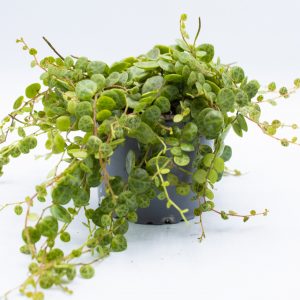
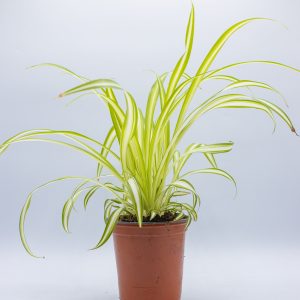
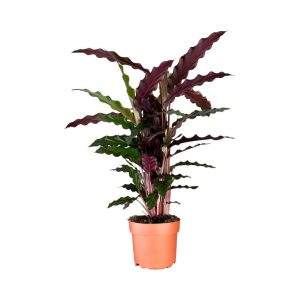
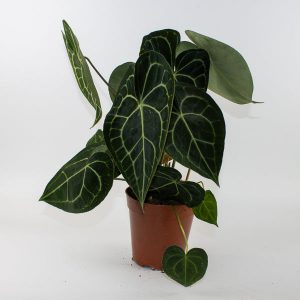
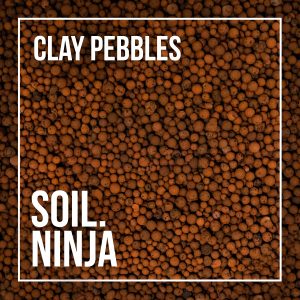

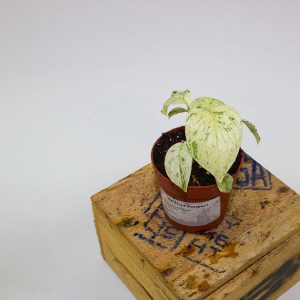
Reviews
There are no reviews yet.